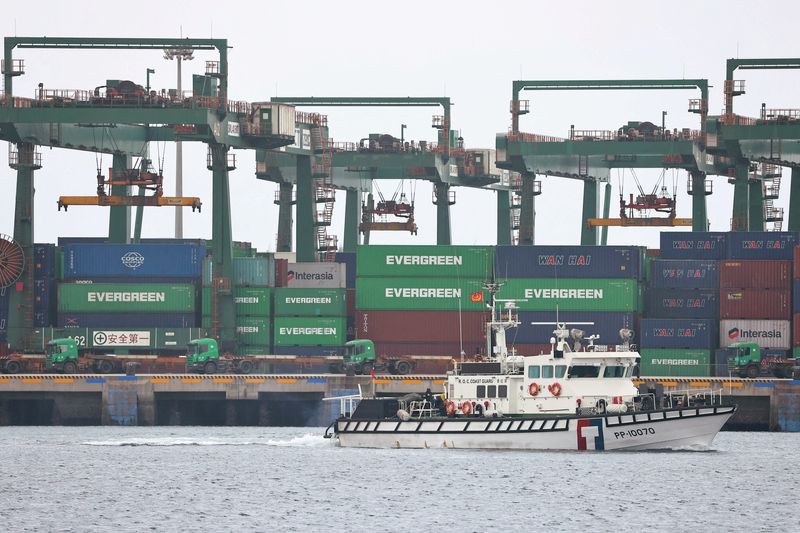By Roger Tung and Jeanny Kao
TAIPEI (Reuters) -Taiwan's economy is likely to grow at a slower pace this year that initially forecast, the statistics office said on Friday, lowering its outlook due to global inflation and slowing consumer demand in major markets.
The downward revision was accompanied by the statistics office trimming its export forecast for this year and offering a low forecast for next year, though it said semiconductor demand would still help drive the economy.
"Looking ahead to 2023, driven by the leading process advantages of the domestic semiconductor industry and the increase in manufacturing capacity, export momentum is expected to continue, but global demand is cooling," it said.
Gross domestic product (GDP) for 2022 is now expected to be 3.76% higher than last year, the Directorate General of Budget, Accounting and Statistics said, revising down the 3.91% forecast it issued in May.
The outlook is far slower than the 6.45% logged for 2021, which was the fastest rate since the economy expanded 10.25% in 2010.
The full-year GDP outlook could see further downward revisions, said Woods Chen, head of macroeconomics at Yuanta Securities Investment Consulting in Taipei.
"There are still many potential uncertainties in the external environment, such as the possibility of energy problems in Europe," he said.
The statistics agency now sees 2022 exports up 13.51% on last year, compared with 14.62% predicted earlier.
Giving its first estimate for next year, it said it saw 2023 GDP expanding 3.05%, while exports would inch up only 2.64%.
The directorate said monetary policy tightening and inflation driven by the war in Ukraine were affecting consumers, even as demand for semiconductors, the main plank of Taiwan's economy, remained strong.
It also pointed to China's lockdown measures to control the spread of COVID-19 as a crimp on economic activity.
Taiwan's exports are a bellwether of demand for global tech giants such as Apple Inc (NASDAQ:AAPL), as the island is a major producer of semiconductors, a global shortage of which has rattled firms like auto makers and boosted Taiwanese corporate profits.

The office also revised up its 2022 inflation outlook. It sees 2022 consumer prices 2.92% higher than last year, compared with a previously forecast rise of 2.67%, though it added that 2023 would show an increase of just 1.72%.
In the second quarter, GDP was up by a revised 3.05% on a year earlier, growing slightly more slowly than indicated in a preliminary reading of 3.08%, the agency said.
